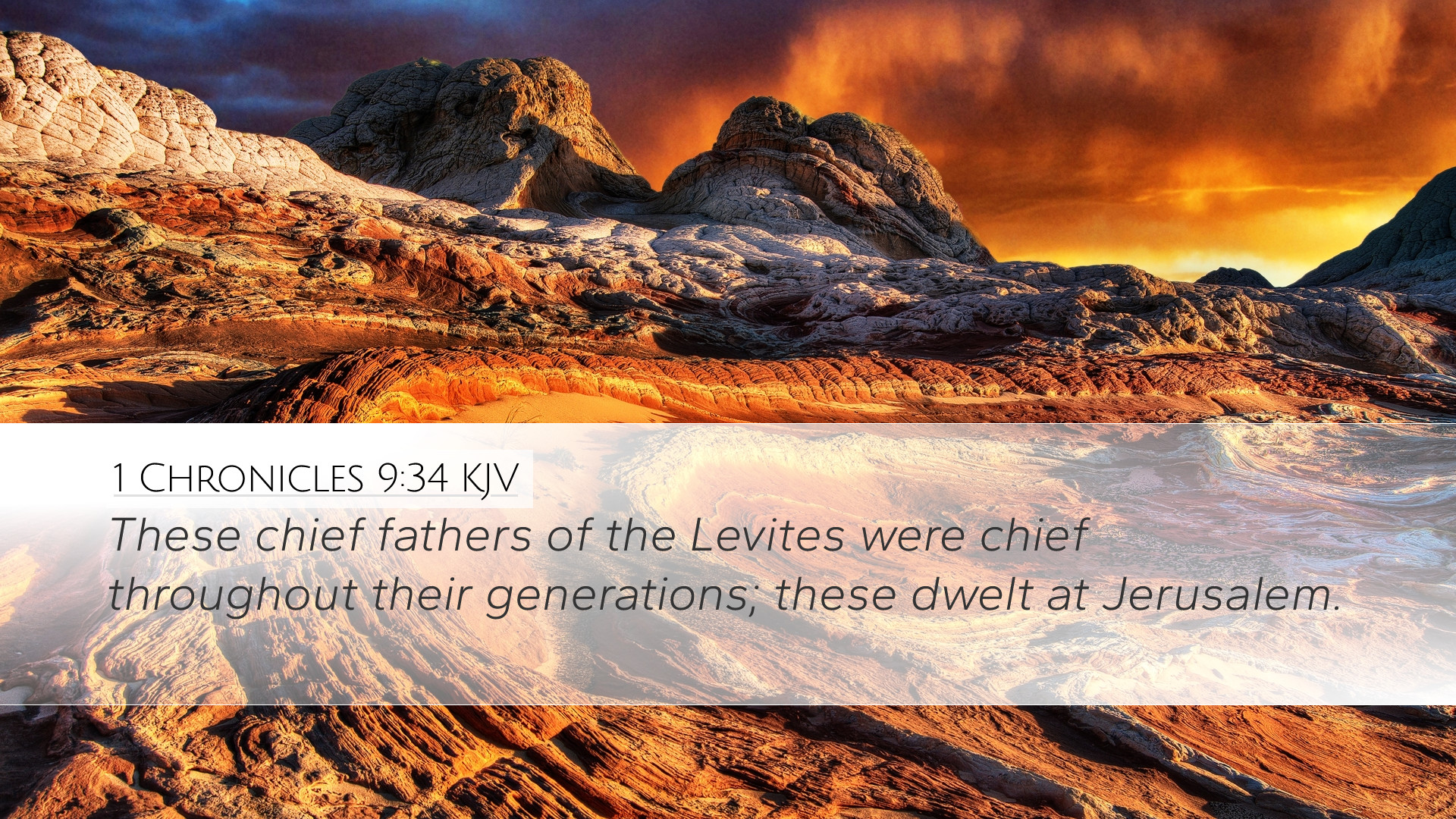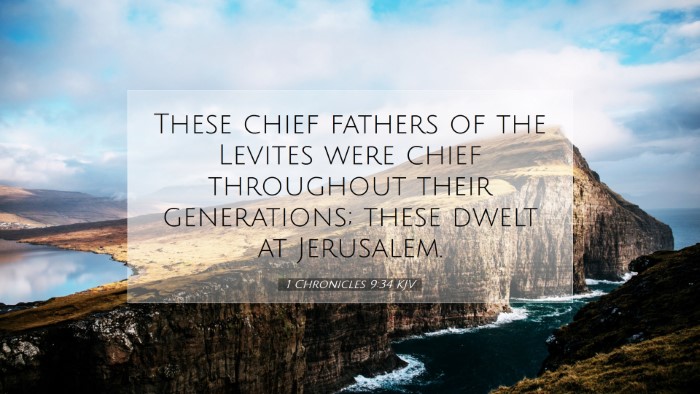Commentary on 1 Chronicles 9:34
Verse: "These dwelt among their brethren in Jerusalem." (1 Chronicles 9:34)
Introduction
This verse is nestled within a genealogical record that emphasizes the importance of lineage and the priestly heritage in the Old Testament. It provides insights into the settlement of the Levites and their role within the community of Jerusalem after the Babylonian exile. Understanding this verse requires a deeper exploration of its context and theological implications.
The Significance of the Levites
The Levites played a crucial role in the religious life of Israel, being the tribe set apart for the service of God. Matthew Henry notes that these individuals not only had roles in worship and ritual but also upheld the spiritual integrity of the nation. Their settlement in Jerusalem strengthens the city as a center of worship and religious instruction.
Contextual Analysis
1 Chronicles 9 discusses the reestablishment of the people in Jerusalem following their return from exile. This chapter highlights the organization of the community and the pivotal roles played by various groups. Albert Barnes emphasizes the necessity of maintaining the priestly line, asserting that the Levites were integral to the restoration of true worship in a post-exilic context.
Genealogy and Heritage
Genealogies in the Hebrew Scriptures serve multiple purposes, including establishing authority and demonstrating God’s faithfulness over generations. Adam Clarke remarks that this emphasis on lineage reflects the ongoing covenant relationship between God and Israel, showing how He preserves a remnant for His service.
Theological Implications
The mention of the Levites 'dwelling among their brethren in Jerusalem' suggests a communal identity rooted in worship. The Levites were not isolated; instead, their presence in Jerusalem indicates a collaborative effort in upholding the law and facilitating communal worship. This theological assertion affirms that worship is never merely an individual endeavor but a communal responsibility.
Community and Worship
Worship in the Old Testament is deeply communal, as noted by Henry. The Levites' role in leading worship ties them to the larger body of Israel. They were responsible for teaching the law and ensuring that the people adhered to God’s commandments. This communal aspect of worship can be a lesson for contemporary congregations, encouraging unity and cooperation among believers.
Practical Applications
For modern-day pastors and theologians, this passage serves as a reminder of the importance of church governance and the roles that individuals occupy within the body of Christ. The Levites' commitment to their brethren highlights the necessity of dedicated service among church leaders today.
- Service Orientation: Pastors and church leaders are called to serve, much like the Levites, facilitating worship and teaching within their communities.
- Community Focus: The sense of belonging and community is paramount in ministry; leaders must cultivate an environment where all are welcomed and encouraged to worship together.
- Spiritual Heritage: Recognizing the heritage of faith in the church can motivate members to embrace their roles in the body of Christ as essential to its mission.
Conclusion
The verse from 1 Chronicles 9:34, though brief, encapsulates profound truths about community, service, and worship in the life of God's people. Insights drawn from public domain commentaries offer a layered understanding of the text, encouraging readers to reflect on their communal responsibilities in faith as well as the heritage that God has preserved through generations.
Overall, this verse not only reflects on the Levites' duties but also challenges contemporary believers to embody a spirit of service and commitment in their local worship communities.


